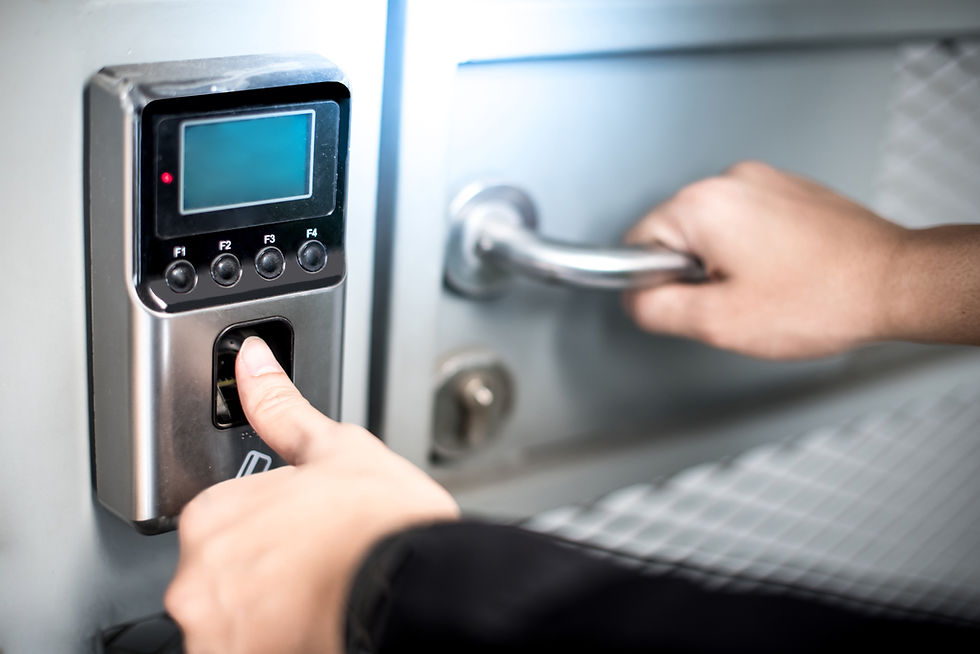Protecting Your Business During Social Unrest
- Shawn F. Wurtsmith, MBA, PSP

- Oct 14, 2024
- 2 min read

Social unrest, while often driven by important social issues, can unfortunately create unpredictable and potentially dangerous situations for businesses. From physical damage to data breaches, the risks are real. This blog post outlines proactive steps companies can take to enhance their security posture and mitigate potential threats during periods of social unrest.
1. Physical Security Measures:
Reinforced Infrastructure: Consider reinforcing windows and doors with shatter-resistant film or shutters. Implement access control systems to limit entry points and monitor who comes and goes.
Surveillance Systems: Invest in high-quality CCTV systems with remote monitoring capabilities. Ensure cameras cover all critical areas, including entrances, exits, and valuable assets.
Perimeter Security: Utilize fencing, gates, and lighting to deter unauthorized access. Consider hiring security personnel for added protection, especially during heightened periods of unrest.
Emergency Supplies: Stock up on essential supplies like first aid kits, fire extinguishers, and emergency lighting. Ensure employees know where these supplies are located and how to use them.
2. Cybersecurity Measures:
Data Backup and Recovery: Regularly back up critical data to offsite locations or cloud services. Test your recovery plans to ensure business continuity in case of system disruptions or cyberattacks.
Network Security: Strengthen your network defenses with firewalls, intrusion detection systems, and multi-factor authentication. Update all software and security patches promptly to address vulnerabilities.
Employee Training: Educate employees about cybersecurity best practices, including phishing scams and social engineering tactics, which may increase during social unrest.
Social Media Monitoring: Monitor social media channels for any potential threats or mentions of your business. This can help you anticipate and respond to emerging risks quickly.
3. Employee Safety and Communication:
Emergency Communication Plan: Develop a clear communication plan to keep employees informed during critical events. Utilize multiple communication channels, such as text messages, emails, and phone calls.
Evacuation Procedures: Establish and practice evacuation procedures. Ensure employees know the designated assembly points and how to safely exit the premises.
Travel advisories: Stay informed about local situations and advise employees about potential travel risks. Consider flexible work arrangements or remote work options if possible.
First Aid and CPR Training: Provide basic first aid and CPR training to employees, empowering them to assist in case of emergencies.
4. Community Engagement and De-escalation:
Community Relationships: Foster positive relationships with local community organizations and leaders. This can help build trust and understanding during challenging times.
De-escalation Training: Consider providing de-escalation training to employees who may interact with the public. This can equip them with skills to handle potentially volatile situations peacefully.
Transparency and Communication: If your business is directly impacted by social unrest, communicate transparently with your stakeholders, including employees, customers, and the community.
5. Insurance and Risk Assessment:
Insurance Coverage: Review your insurance policies to ensure adequate coverage for property damage, business interruption, and liability.
Risk Assessment: Conduct a comprehensive risk assessment to identify potential vulnerabilities and prioritize security measures.
By taking these proactive steps, companies can significantly enhance their security posture and mitigate potential risks associated with social unrest. Remember, prioritizing the safety of your employees and protecting your business assets are crucial during uncertain times.




Comments